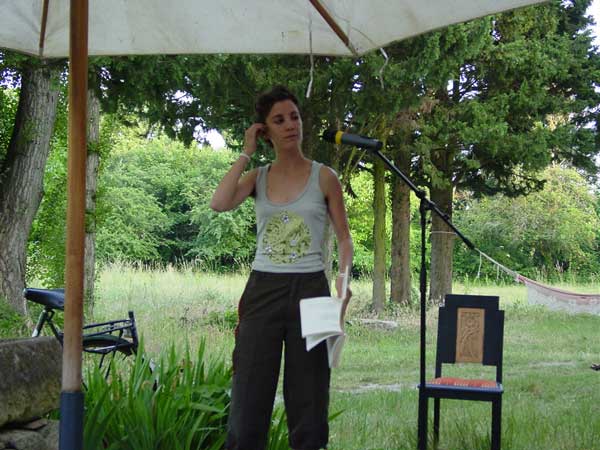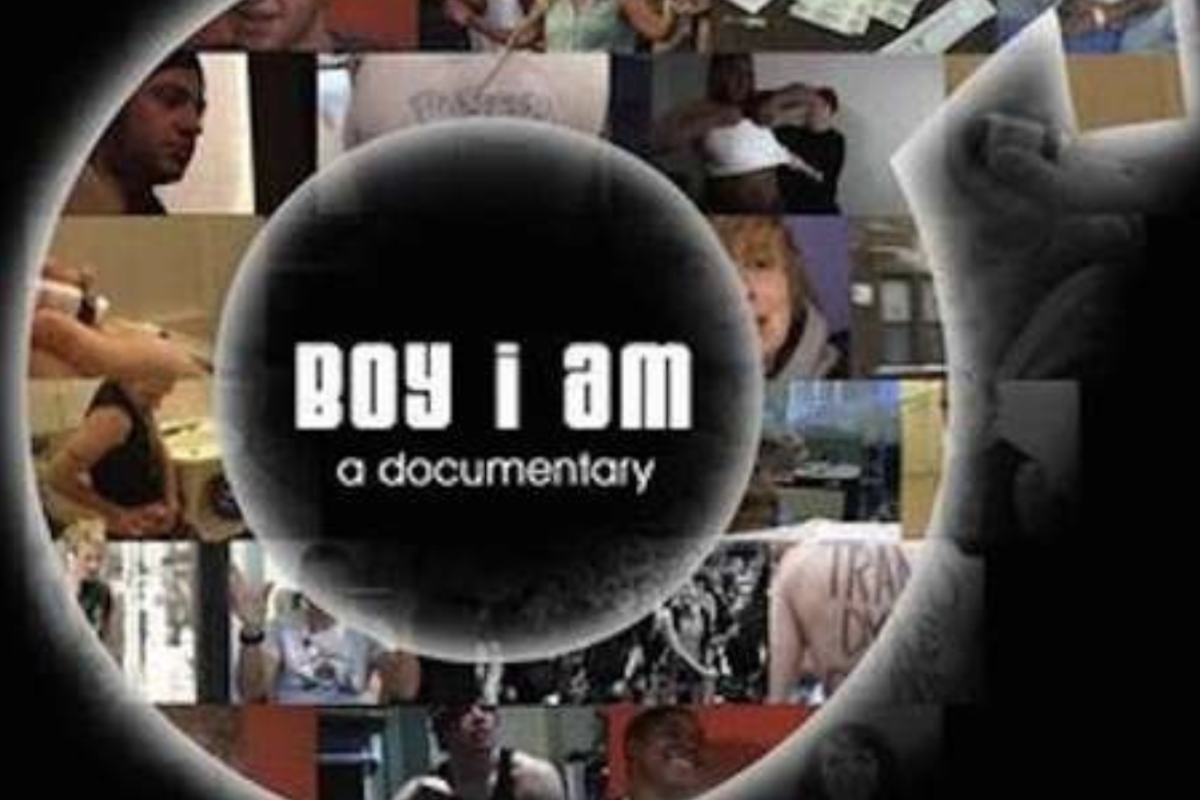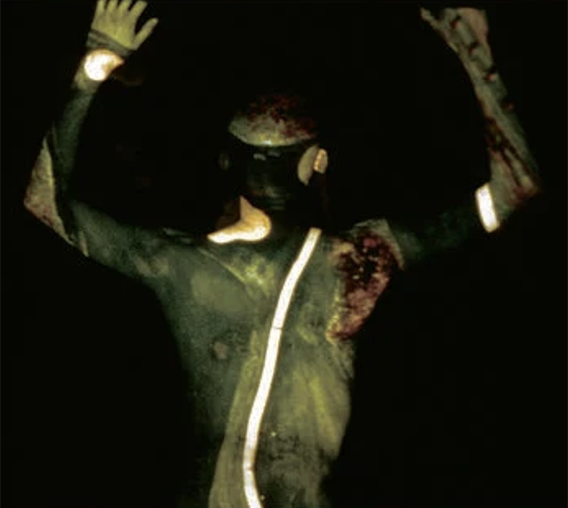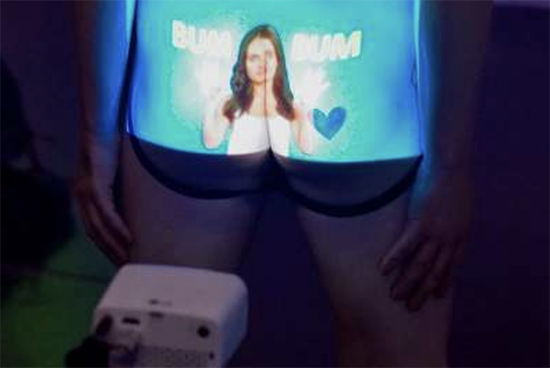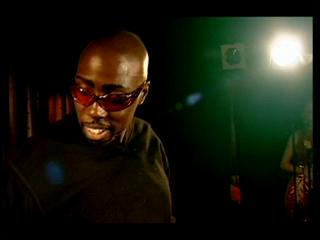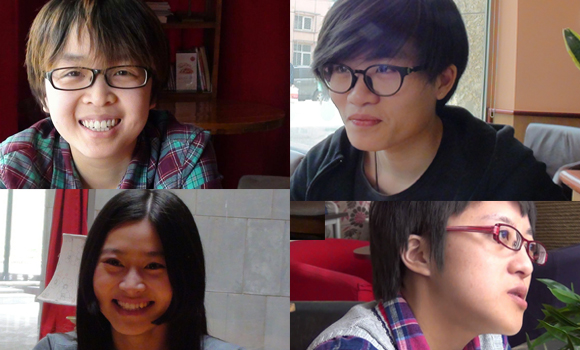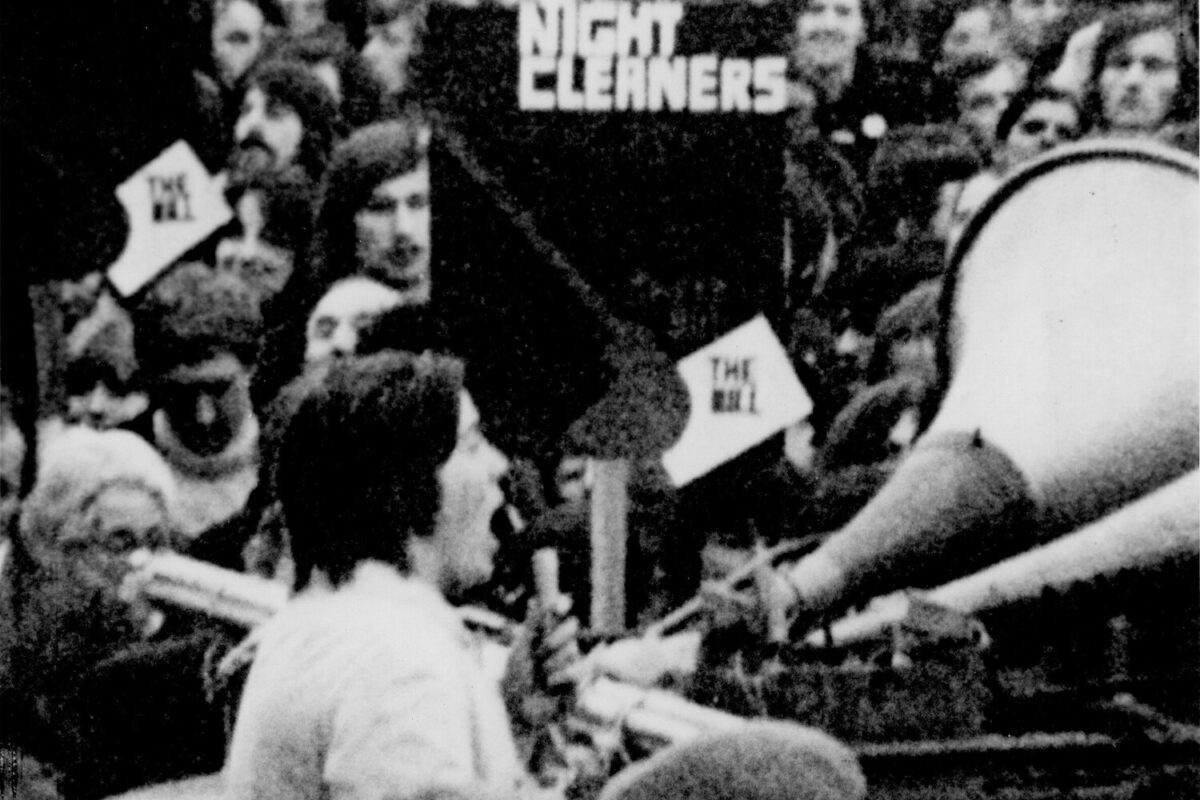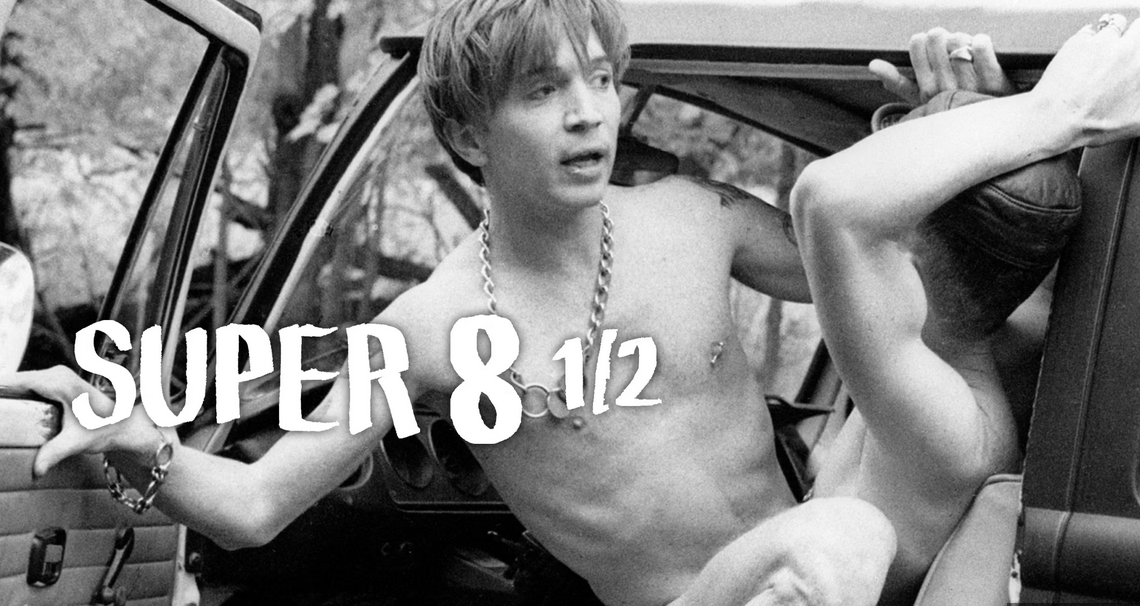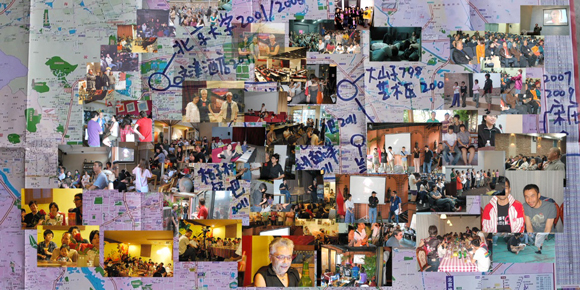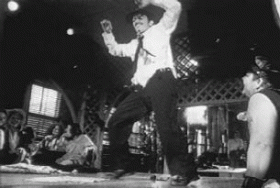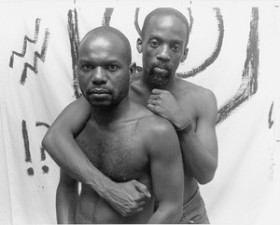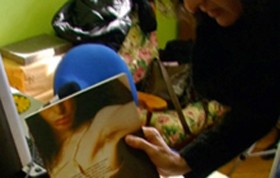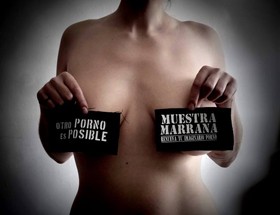directed by Dalila Kadri, 2004 The documentary-alternative film “Fireflies (Lucioles)” is part of a European Commission project called “Lesmigras” (migrant lesbians), whose objectives are to fight racism, sexism and homophobia inside the European space that started in 2001 and closed in 2004. As the producer and the director of the movie, I choose to show […]
Sam Feder / Julie Hollar: Boy I am (2006)
An important exploration of issues rarely touched upon by most films portraying female-to-male (FTM) transgender experiences, this feature-length documentary sets itself apart from other recent films on this topic. Tackling the resistance of some women in feminist and lesbian communities who view FTM transitioning as at best a “trend” or at worst an anti-feminist act that taps into male privilege, this groundbreaking film opens up a dialog between the lesbian, feminist, and transgender communities while also promoting understanding of transgender issues for general audiences.
Transgender Migrations. The Bodies, Borders, and Politics of Transition
Edited by Trystan Cotten
2012, New York, Routledge.
Transgender Migrations brings together a top-notch collection of emerging and established scholars to examine the way that the term “migration” can be used not only to look at the way trans bodies migrate from one gender to the (an?) other, but the way that trans people migrate in the larger geopolitical contexts of immigration reform, the war on terror, the war on drugs, and the increased policing of national borders. The book centers trans-ing experiences, identities, and politics, and treats these identities as inextricably intertwined with other social identities, institutions, and discourses of sexuality, nationality, race and ethnicity, globalization, colonialism, and terrorism. The chapter authors explore not only the movement of bodies in, through, and across spaces and borders, but also chart the metamorphoses of these bodies in relation to migration and mobility. Transgender Migrations takes the theory documented in The Transgender Studies Reader and blows it up to a global scale. It is the logical next step for scholarship in this dynamic, emerging field.
Pêdra Costa: de_colon_isation (2017->)
de_colon_isation is a live performance series to create a space of intimacy and political claim through the body, live images by a dildo camera and “The Southern Butthole Manifesto”. It uses post-porn as a strategy of pleasure, aesthetics and politics. Playing the artist as an exhibitionist, it shows performance art as a place to interact […]
Gabriel Baur: Venus Boyz (2002)
A legendary Drag King Night in New York is the point of departure for an odyssey to transgendered worlds, where women become men – some for a night, others for their whole lives. What motivates them. What changestake place? What do they dream of? The drag kings of New York meet in clubs and change lustfully into their male alter egos, parodying them and exploring male eroticism and power strategies. In London we see women experiment with hormones to become new men and “cyborgs”. Masculinity and transformation as performance, subversion or existential necessity. An intimate film about people who create intermediate sexual identities.
Da Jing: We Are Tomboy (2013)
Documentary by Da Jing
http://www.someprefercakefestival.com/
Da Jing: The Death of Lesbians (2013)
Documentary by Da Jing
http://www.someprefercakefestival.com/
Berwick Street Collective: Nightcleaners Part 1 (1975)
Nightcleaners Part 1 was a documentary made by members of the Berwick Street Collective (Marc Karlin, Mary Kelly, James Scott and Humphry Trevelyan), about the campaign to unionize the women who cleaned office blocks at night and who were being victimized and underpaid. Intending at the outset to make a campaign film, the Collective was […]
Zemirah Moffat: Mirror, Mirror (2009)
Queer Giving is the material realisation of a practice-led research project into contemporary radical queer ways of being. It is one thesis composed of the film Mirror Mirror and the paper One Queer Gift. They are derivatives of my ethnographic investigation into the radical queer vision of London’s Club Wotever (2003-). Working within the potentials of their respective forms, both film and paper argue that radical queer identities, as found in the major urban centres of the metropolitan West, derive their multiple-meanings, integrity and raison d’etre within and through dialogue. Characterised by audio-visual provocation and cautious disclosure, Mirror Mirror reflects this formative feedback through its text and narrative drive.
Bruce LaBruce: Super 8 1/2 (1993)
LaBruce stars in this vaguely autobiographical look at a triple-X star-director caught in the downward spiral of his career. Remarks Googie, the art-house auteur who’s either exploiting LaBruce or launching his comeback, “He was actually attempting to break down the whole subject-camera relationship… It was as if he was an existentialist trapped in a porno star’s body.” Well, almost.
Yang Yang: Our Story – 10-year “guerrilla warfare” of Beijing Queer Film Festival (2011)
In 2001 three students of Peking University in Beijing held the first gay and lesbian film festival. The festival was brought to a halt by the university authorities during the opening event. This was a foretaste of what was to follow during the next ten years, in which the festival has battled against the oppressive […]
Marina Gržinić/Aina Šmid: The Threat of the Future (1983)
With the song by Yello “Pin ball cha cha” and the singer that invites us to watch by singing “Come, come closer to me, I tell you man you will see…” we enter in the dance performed by Marina Grzinic. The public is in relation to the dance as in a peep show, implying a pornographic camera eye but as well a certain cannibalisation/pornographic perpetuation of our lives by the law and mass media that from 1980s will transform the paradigm of society and discipline into society and control. Therefore we have a duplication of roles, Marina Grzinic and Aina Smid in front of the camera as in some kind of cinema verite (talking about their sexual lives and lesbian attitudes) and Grzinic/ Smid on the TV behind them as a night show.
